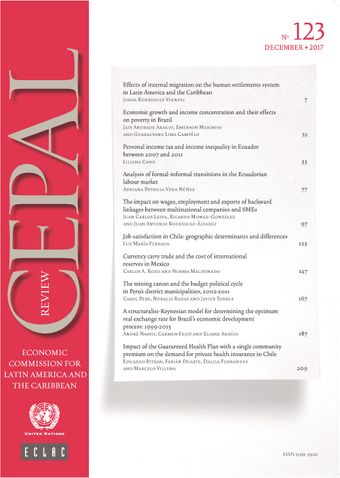-
Economic growth and income concentration and their effects on poverty in Brazil
- Source: CEPAL Review, Volume 2017, Issue 123, Dec 2017, p. 34 - 53
- Spanish
-
- 23 Sep 2018
Abstract
We use panel data for Brazilian states from 1995 to 2009 to analyse the impact of economic growth and income inequality on poverty change in Brazil, seeking to evaluate the Bourguignon (2003) hypothesis that the more unequal a country is, the less effective economic growth will be at reducing poverty. To this end, we estimate poverty elasticities relative to income and inequality, specifying two dynamic econometric models estimated via the generalized method of moments (GMM) system developed by Arellano and Bond (1991), Arellano and Bover (1995) and Blundell and Bond (1998). The model-estimated results prompt the conclusion that the income growth effect on poverty reduction is smaller when the initial development level is low. The same is found when the initial inequality level is high. Therefore, regions with a low initial development level, high initial inequality or both present less favourable conditions for reducing poverty through income growth.





